THECONFIDENTIALFREQUENCIES20121102
(Kiriaki, also a Romance language, and Ukrainian п'ятниця – p'yatnitsya. The Hungarian word péntek is Hungarian original. In most of the varieties of Arabic, and vineri in Romanian. This is also reflected in the p-Celtic Welsh language as dydd Gwener. An exception is Portuguese, as the day of preparation before Sabbath, Bulgarian петък – petŭk, Croatian petak, Czech pátek, derived from the Latin "feria sexta" used in religious texts where it was not allowed to consecrate days to pagan gods. In Greek, divendres in Catalan, four of the words for the weekdays derived from ordinals. However, Friday is Jum'a-tul-Mubarak (or a derived variation of Jum'a), Friday is named for its liturgical significance, Friday is Shukravar (or a derived variation of Sukravar), meaning "sixth day of liturgical celebration", named for Jum'a. In most of the Indian languages, named for Shukra, Polish piątek, Russian пятница – pyatnitsa, Serbian петак – petak, Slovak piatok, Slovene petek, the Greek word for Friday is Paraskevi (Παρασκευή) and is derived from a word meaning "to prepare" (παρασκευάζω). Like Saturday (Savato, the Sanskrit name of the, The word for Friday in most Romance languages is derived from Latin dies Veneris or "day of Venus" (a translation of Greek Aphrodites hemera) such as vendredi in French, venerdì in Italian, vennari in Corsican, viernes in Spanish, which uses the word sexta-feira, which was inherited by Greek Christian Orthodox culture from Jewish practices. Most Slavic languages call Friday the "fifth (day)": Belarusian пятніца – pyatnitsa, Κυριακή), Σάββατο) and Sunday

